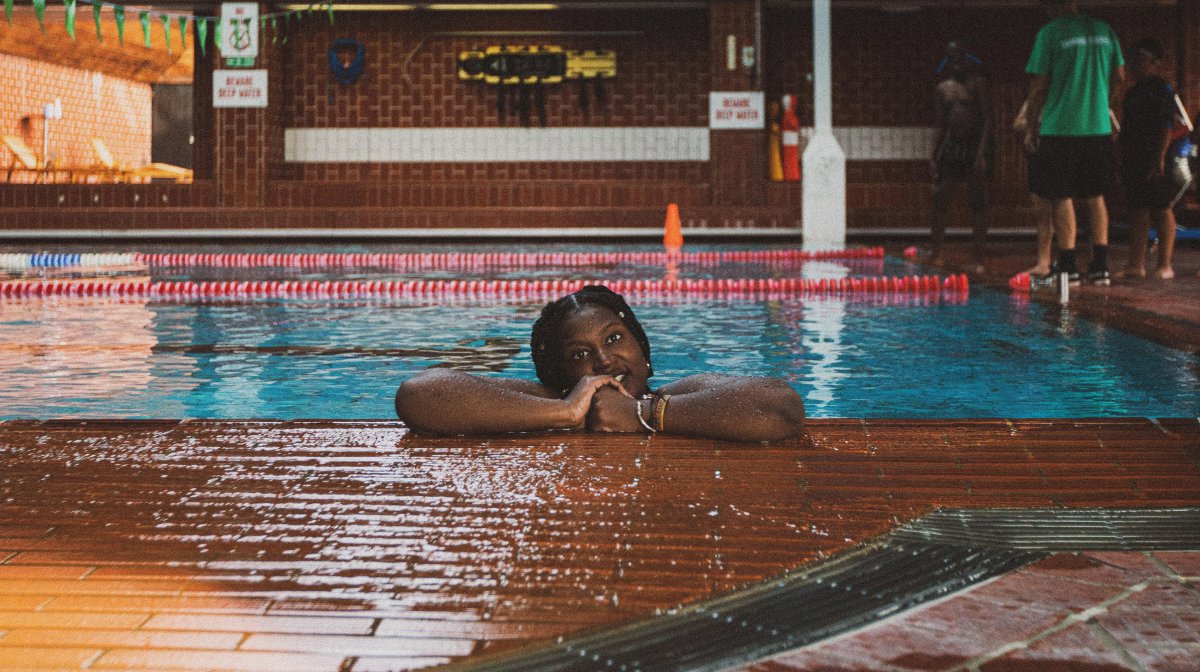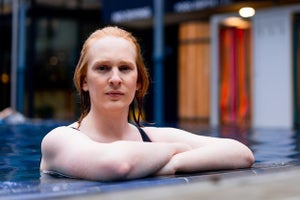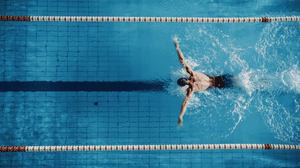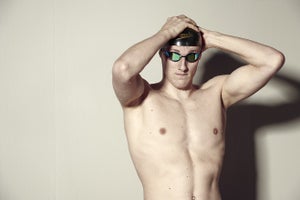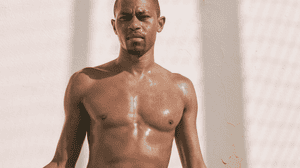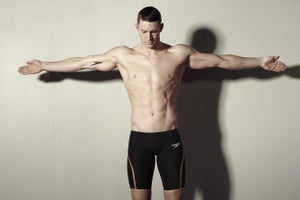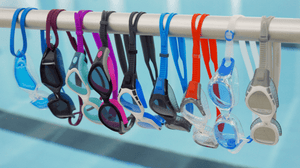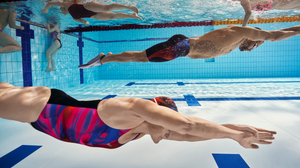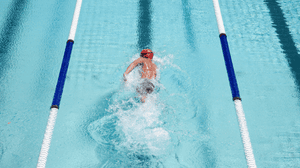
“There’s so much power in Black people not being afraid of water.”
Growing up in Brixton, Remi Sadé loved to swim — but she knew that wasn’t the same for everyone. Now, Remi’s hoping to share the joy of the pool with her young daughter. Partly as a way to stay connected with her Caribbean roots. And partly for the power of overcoming the complex barriers that have previously kept many people in Black communities away from the water.
“On Saturdays, I would ride my bike to the swimming pool and you could stay in the pool and just swim all day.”
As a child, swimming was a key part of Remi’s weekend rituals, along with reading books and riding her bike. She explains, “I would go swimming just before I washed my hair, so I could take out my canerows and not worry about the chlorine.” Cycling to the Brixton Recreation Centre, known in local affections as the Brixton Rec, she could look forward to whole days’ worth of uninterrupted swimming.
“On Saturdays, I would ride my bike to the swimming pool and then I would lock it up and go upstairs and go for a swim. When I was little there was no time limit. So you could stay in the pool and just swim all day,” she remembers.
As a child/in her childhood, Remi was unaware of the complex and often multi-layered barriers between Black communities and swimming. “It surprised me, it made me feel sad. And it was weird to me, because I didn't fit that,” she explains. “I think that when we look at the relationship between Black people and swimming, it depends on the understanding and perspective that you have. We're not a monolith, but I do think that the cultural experiences of Black and Brown communities in western countries can often lend itself to one narrative.”
“But knowing these things, I then kind of understood a bit more why other members of my community might not choose to go swimming, or it wasn't the first thing that they wanted to do.”
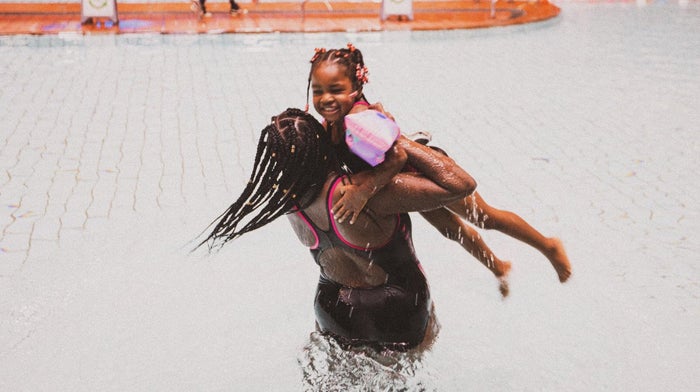
“Because people who are marginalised always talk about how they overcame being marginalised in the space that they desired to go into.”
So what — from Remi’s perspective — needs to change? And how do we best go about creating that change? There are many things, but representation and dialogue beyond tokenism underwrite them all.
“Representation is always one of the key things,” she considers. “I think another thing is for organisations to have conversations with more members of those communities. Because I'm gonna have a perception or a perspective that another Black girl might not have, you know?”
And for anyone from the Black community who doesn’t swim but wants to get closer to the pool, Remi’s advice is to: “find people who you can relate to. So, if your concern about swimming is maybe your hair, then find people who have hair textures like yours who swim and see how they manage it. Because people who are marginalised always talk about how they overcame being marginalised in the space that they desired to go into.”
“I hope that people have their own relationship with the water. I think it's really important when gaining confidence with the water that you understand that as dynamic as water is, so are we as humans.”
Now Remi is keenly but patiently introducing her daughter to the joys of the pool. It’s a journey rather than a case of love at first sight. “I think it took her a week of looking at the water to be comfortable to get her toes into it. And that's not a cultural thing at all, that's just her personality. So don't force yourself. It takes time,” she says.
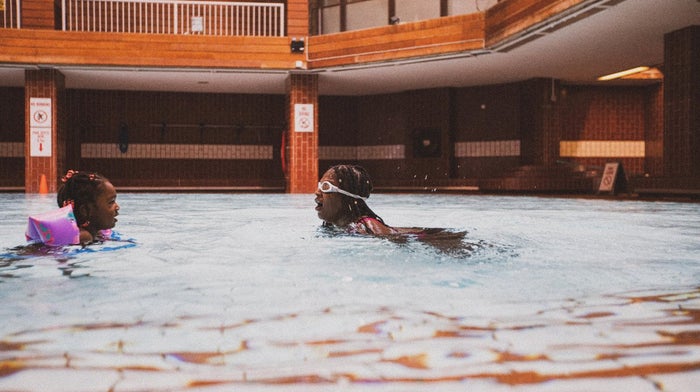
“I hope that people don't look at my experiences of swimming and think that now they need to go and have the same ones. I think it's really important when gaining confidence with the water that you understand that as dynamic as water is, so are we as humans.
“And so I hope that everybody else can take from swimming the fact that you don't need to be a swimmer to swim. You don't need to be an athlete, and you don't need to be particularly good at it. As long as you know how to float enough so that you don't drown and you know you have your exit points. That's enough to start.”
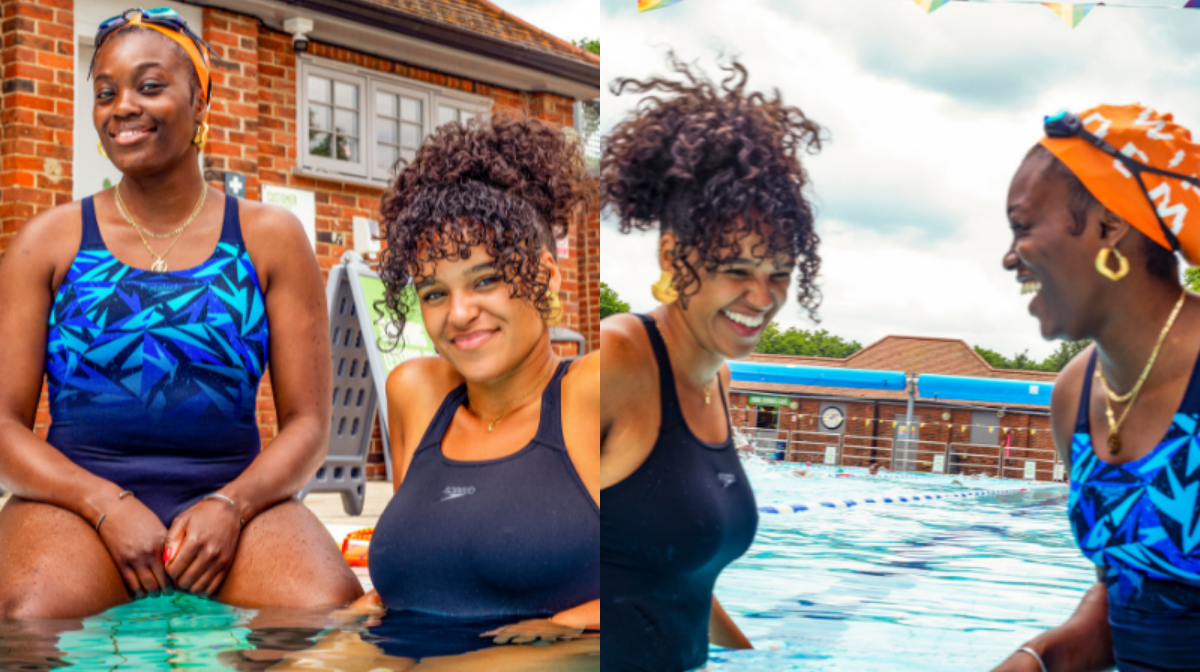
Black Girl Fest (BGF) Swim Stories
Get to know Nicole and Rochelle from Black Girl Fest, including what swimming means to them, how they look after their hair and skin post-swim, and how they want to see more black women in the pool.

